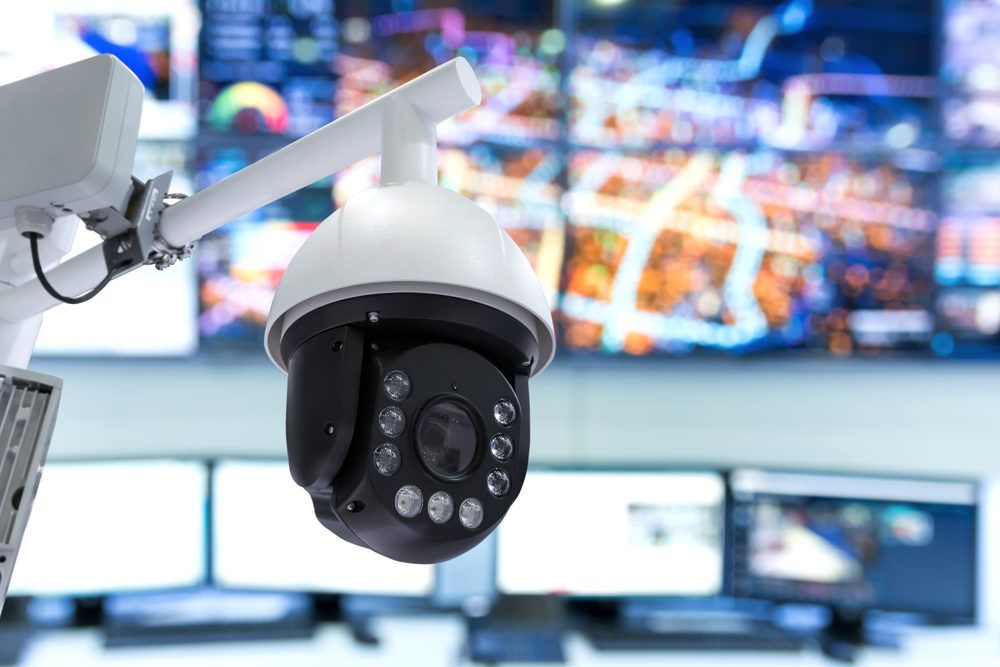Enhancing Oil and Gas Security Systems: Advanced Security for Critical Infrastructure
The oil and gas industry is a cornerstone of global energy supply and economic stability, making infrastructure security paramount. From pipelines to...

In light of recent concerns about foreign surveillance cameras entering government buildings, CIOs would be wise to do the necessary research when purchasing physical security products.
Earlier this month, Aventura Technologies became the subject of a whirlwind of criticism when users discovered that their manufactured surveillance cameras and security equipment were made in China.
For years, Aventura Technologies has sold its products with “Made in the USA” labels and US-centric packaging. In fact, one of its largest clients over the past several years has been the US government, who uses Aventura products — like night vision and body cameras, automated turnstiles, and other security equipment — in Air Force bases, energy plants, and municipal buildings.
The recent discovery that most of these products are manufactured in China — and that many of them carry known cybersecurity risks — has raised the alarm in the physical security sector. The incident has also further inspired fear of foreign tampering in our national security, which is becoming an increasingly common concern. There’s a growing list of incidents related to malicious tampering in our political, economic, and social institutions at the hands of foreign adversaries, and this incident reveals another possible avenue for such tampering.
Beyond the potential risk of being vulnerable to the attacks of foreign agencies, CIOs also should consider how physical security systems may be vulnerable to other forms of cybercrime. According to new research, connected security cameras make up nearly half of all IoT security attacks, and it’s no surprise why. Because cybercriminals are becoming more sophisticated every day, most of their attacks can easily bypass the security of basic camera models which are low-powered, low-cost, and often, low-security.
What’s more, because so many of these cameras share a similar blueprint, a vulnerability found in one cheap Internet Protocol (IP) camera will likely exist in many more. This means that a hacker only needs to develop one or two attacks to exploit a poorly-defended smart camera and gain access to a network.
In addition, certain faults in specific camera architectures enable hackers to exploit smart cameras via the cloud. Other times, threat actors can exploit specific IP cameras by spoofing the DNS server addresses listed in the camera’s settings. In all, there’s no shortage of attack methodologies, and most of them are not very complicated.
With smart camera attacks, there’s not only a high chance of a data breach but also a high risk of damage. Although these devices may not contain much valuable data themselves, they can be used as a backdoor to a network once exploited, allowing a hacker to exfiltrate sensitive data or dump malware. Due to these conditions, it’s critical that CIOs invest not only in American surveillance systems, but also products with reliable security features and advanced capabilities — made and sold by industry-trusted vendors.
At the end of the day, whether your primary concerns are foreign agents or domestic hackers, the key is to be sure you are investing in a camera with robust security against all methods of attack. That means it needs to have high-processing capabilities, come from a reputable brand, and preferably be American-made.
Avigilon — a Motorola Solutions company — designs and manufactures a large catalog of advanced AI smart cameras, video analytics, and surveillance camera solutions. The latest from Avigilon is its H5 camera line, which provides image detail of up to 5K (16 MP) resolution alongside advanced self-learning video analytics.
Avigilion’s H5A camera features built-in HDSM SmartCodec technology, which optimizes compression levels, maximizes bandwidth savings, and keeps connectivity costs down. It’s also built with backend LightCatcher technology to improve visibility in both incredibly low or high light settings. And alongside best-in-class features to help you keep on top of physical security, Avigilon Control Center (ACC) video management software ensures cybersecurity is a priority as well. Its security measures include strong password enforcement, connection authentication, data encryption, and strict user permissions. Finally, in light of recent news, it’s important to acknowledge that all of Avigilon’s cameras are 100% American-made. In short, it’s not your average IP camera with a whole host of vulnerabilities.
However, it’s not enough to just have a trusted product — you also need a trusted partner to help you install the cameras in your buildings, hallways, and offices. That’s where Turn-key Technologies, Inc. (TTI) comes in. Along with our seasoned experience selling, installing, and engineering the latest physical security solutions, our staff has the requisite IT expertise to ensure all aspects of your business are secure from both physical and cyber threats.
With nearly thirty years of experience installing and scaling world-class physical security systems across a range of verticals, the experts at TTI are here to help you bring the best of Avigilon’s smart cameras into your business. Whether you’re a small municipal building or a large enterprise, we’ll work with you to develop a custom, fit-to-measure plan for all of your physical security needs.

The oil and gas industry is a cornerstone of global energy supply and economic stability, making infrastructure security paramount. From pipelines to...

PEPPM makes purchasing new technology a breeze for public agencies. And TTI’s new exclusive CSIU award is making it even easier to become our...

Security analytics leverage principles of big data to improve security — both physical security and network security. In a recent article, we wrote...